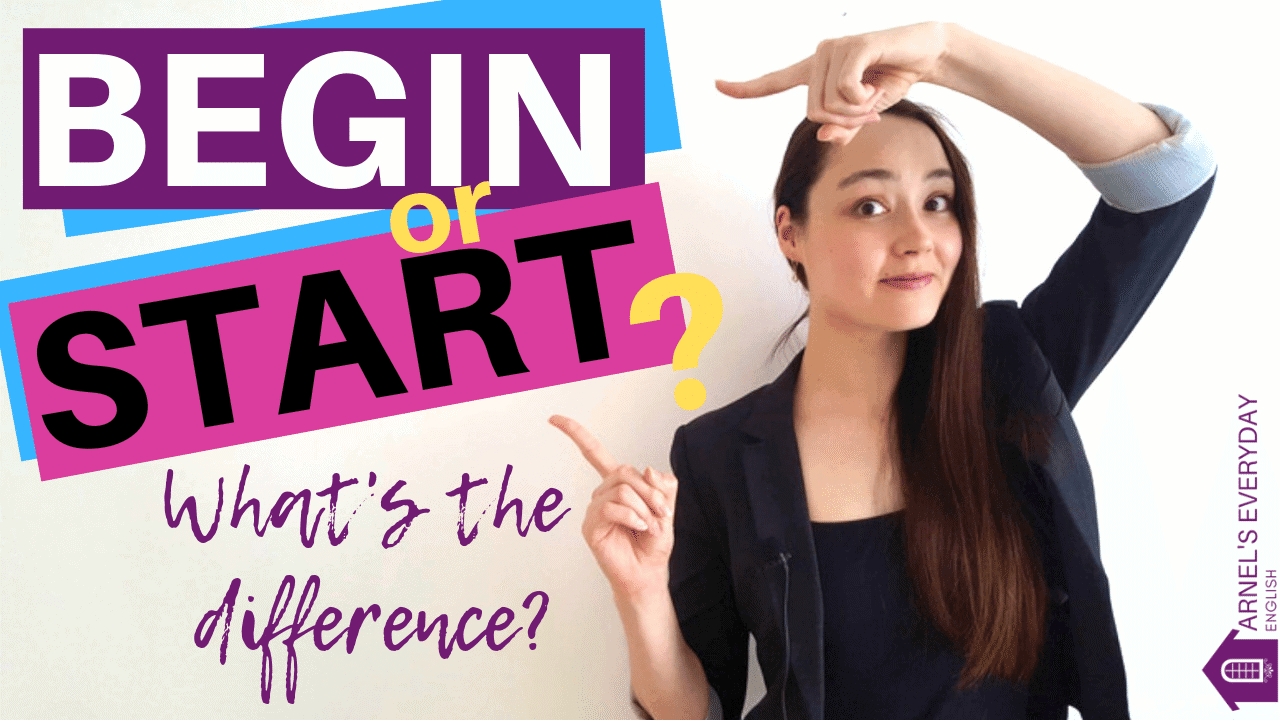‘Begin’ and ‘Start’ can both be used to say the same thing.

‘Begin’ is considered to be more formal.
When does your lesson begin/start?
The performance begins/starts at 8.
It’s beginning/starting to rain.
The football match has already started/begun.
‘Start’ is a regular verb: start / started / started
‘Begin’ is an irregular verb: begin / began / begun
I want to learn 131 IRREGULAR VERBS
BUT! We only use ‘start’ when we speak about machines working.
My car won’t start again.
NOT begin
Somehow my dishwasher started on its own this morning.
NOT began
‘Start’ is also used in set phrases/idioms:
Don’t start (with me) = Don’t argue
Wife: You know, your mom ignored me all evening again.
Husband: Don’t start. We’ve already discussed this.
Child: Mommy, you never buy me anything nice.
Mom: Don’t start with me Carl. You have plenty of toys.
Boyfriend: Why did you like Larry’s post on Facebook? Do you have a crush on him or something?
Girlfriend: Seriously, don’t start. No, I don’t like him, I just liked his picture.
Don’t get me started = I have a negative opinion about this
A: Have you heard about Janine’s promotion?
B: Ugh, don’t get me started. I mean seriously! How unfair is that?
A: What do you think of the president’s new car law?
B: Don’t get me started. I can’t believe it. Another tax? Really!
A: So Marie, how do you feel about your niece being named ‘Princess’?
B: Don’t get me started.
The noun forms are:
the start
the beginning
Again, they can both be used in the same way.
I love the start/the beginning of that new James Bond film.
I didn’t really understand the start/the beginning of her lecture.
Musical director: Okay everyone, once again from the beginning/the start (of the song).
The start/the beginning of every new project can be stressful.
Thank you so much for reading. Please leave a comment! Don’t forget to subscribe to my mailing list so you never miss a lesson. And you’ll get the password to my Free Library 🙂 See you soon!
Your teacher,
Arnel





